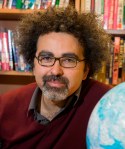Katherine Tonkiss and Nando Sigona
In recent decades, a significant transformation in the meanings, practices and experiences of membership in contemporary Western democracies has taken place. These transformations have challenged traditional conceptions of state membership which have typically assumed the existence of a nation-state, with a burgeoning line of scholarship challenging the significance of the nation-state in determining membership and endowing rights. This literature argues that recent trends in globalisation, human rights and multiculturalism have made state borders less important.
In this context, several questions emerge about the interplay between forms of contemporary membership, migration governance, and the politics of belonging:
- What is the position of the non-citizen in contemporary immigration and emigration states?
- How can the nexus between human mobility, immigration control and citizenship be best conceived?
- How can we resolve the tension in policy and practice between coexisting traditions and regimes of rights; and the intersection of ‘race’ and other social cleavages and legal status?
We invited four speakers to participate in a seminar series at the University of Birmingham earlier this year, to explore these issues through a focus on the boundaries between migration, citizenship and diversity. Each speaker brought a distinctly different perspective, yet some common themes emerged.
Our first speaker was Phillip Cole (University of the West of England). Phillip’s talk was on ‘unreason’ in the UK immigration debate – that is, the reluctance of people to abandon myths about immigration despite the prevalence of evidence that shows these myths to be false. He described how much of the immigration debate is imbued with ‘Heimat’ – a nostalgic idea of belonging to the nation based on an imaginary ideal of the past. Immigration is problematized because it is seen to bring change which pulls us further from this imaginary past.
Phillip’s seminar contributed insights into the politics of belonging and how emotional belonging intersects with the processes of immigration to shape migration governance. Here, such emotional belonging is seen to affect the emergence of different regimes of migration governance as a result of its effects on the political debate.
In her talk, Madeleine Reeves (University of Manchester) explored the boundaries between immigrant ‘legality’ and ‘illegality’ in the context of the territory of the former Soviet Union. Her presentation provided a rich account of migration and immigration governance in what is to date an under researched region in migration studies. By focusing on passports and papers, she drew attention to the hyper-documentation of so called ‘undocumented’ migrants. Her contribution to the debate on ‘illegality’ is especially valuable because it questions assumptions around the significance of legal documents and the role of the state. By shifting the focus, Madeleine reveals the legal and historical production of ‘illegality’ and its significance in the everyday lives of migrants in contemporary Russia.
In her talk, Agnieszka Kubal (University of Oxford) examined the criminalization of migration and migrants and how the incorporation of criminal law into the immigration domain serves to demonstrate government’s firm grip over immigration. But how do migrants respond to this increasing conflation between criminal and immigration domains in the wider social context? Drawing on in-depth interviews with 270 return migrants, Agnieszka demonstrated how migrants’ responses to the stigmatizing force of criminalisation do not always mean resistance, but quite often are placed on a continuum between the contestation and the reproduction of the stigma.
Sarah Neal (University of Surrey) was the final speaker of the series. Her talk focused on the everyday experience of superdiverstity; specifically, how do people live and negotiate cultural difference? Sarah drew particular attention to the apparent absence of ‘race’ in contemporary discussions of superdiversity, and demonstrated through her own research how race has a continued presence as a construct that shapes social relations.
Drawing on her research on ‘living multicultures’ in different urban contexts, Sarah’s talk explored some of the complexities surrounding the relationship between migration and other social cleavages such as race, and during the discussion we also focused on class as another often absent dynamic in debates about diversity. Challenges may arise when we talk about ‘cohesion’ because this fails to capture the enduring complexities of superdiverse communities.
The talks in this series, jointly organised by the Institute for Research into Superdiversity (IRiS) and the School of Government & Society, raised important and timely questions of the changing relationship between migration and citizenship, and between the alien and the citizen. They revealed the power and limitations of the law, the impact of migration myths and the roots of widespread anti-immigration sentiments. They also highlighted the importance of paying attention to national, regional and neighbourhood contexts in order to understand how immigration regimes operate and intersect other spheres of public life at different scales and in different locales.
Katherine Tonkiss is a Research Fellow in INLOGOV. She has research interests in normative and empirical questions surrounding migration, citizenship and identity, particularly in the UK. Her first book, Migration and Identity in a Post-National World, was published in 2013. Follow Katherine on Twitter @ktonkiss.
Nando Sigona is Birmingham Fellow and Lecturer in the Institute for Research into Superdiversity (IRiS) and the School of Social Policy at the University of Birmingham. He is Research Associate at the Refugee Studies Centre and Centre on Migration, Policy and Society, both at the University of Oxford. Nando is co-author of Sans Papiers. The social and economic lives of undocumented migrants, Pluto Press 2014 (forthcoming) and co-editor of the Oxford Handbook on Refugee and Forced Migration Studies, Oxford University Press 2014 (forthcoming) and of the special issue of Identities: Global Studies in Power and Culture on ‘Ethnography, diversity and urban space’, 2013. Follow Nando on Twitter @nandosigona and on http://nandosigona.wordpress.com.

